
CES2019
14:55, 11-Jan-2019
CES serves as launch pad for Chinese tech
Updated
14:41, 14-Jan-2019
By Mark Niu
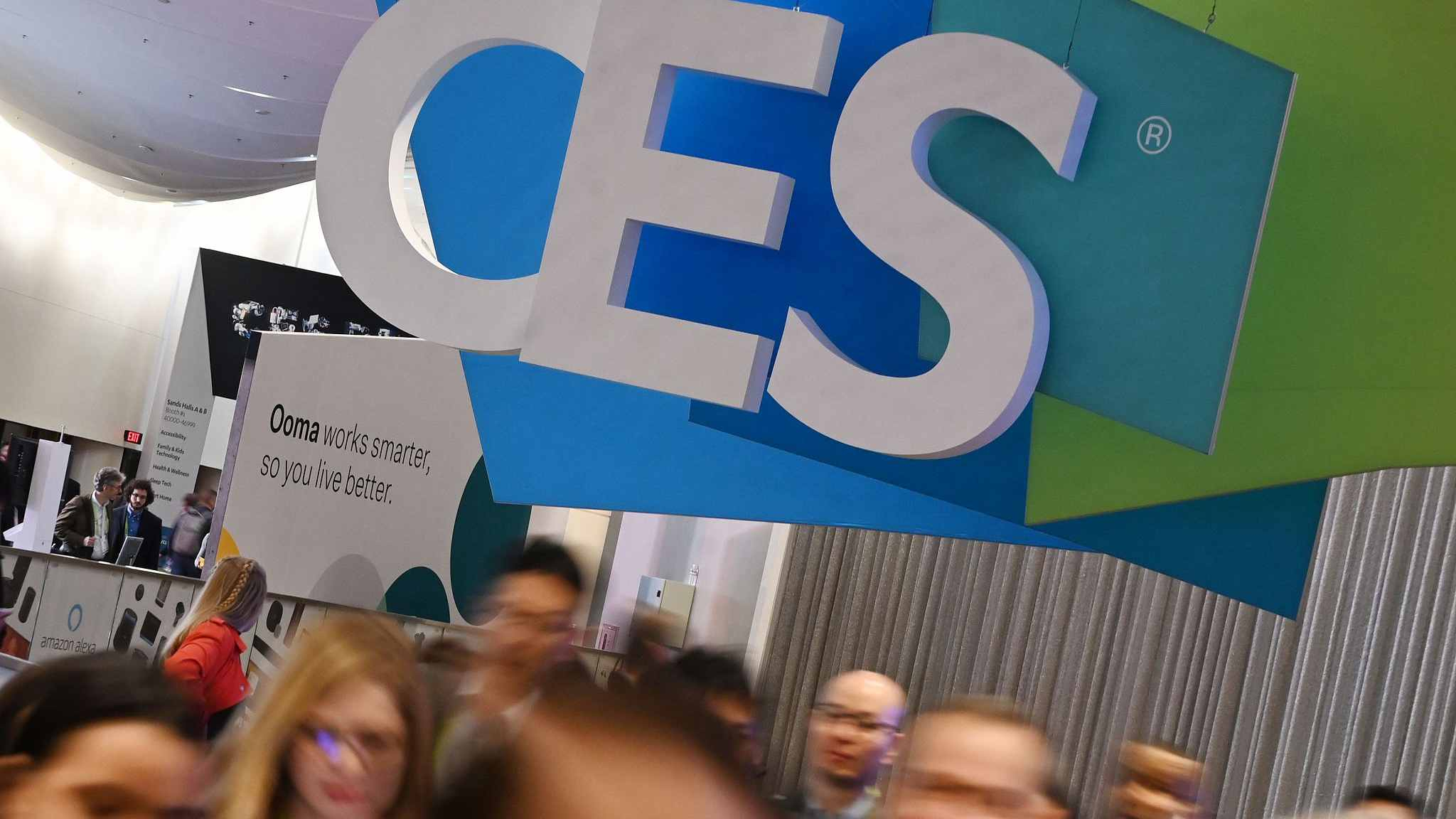
Every year I arrive at CES, it is a sensory overload of lights, sound, crowds and crazy gadgets. This year's CES features more than 4,400 exhibitors showing off the very latest in gadgets.
According to the Consumer Technology Association's President Gary Shapiro, more than 180,000 people from around the world are attending the show along with 4400 exhibitors.
Chinese-owned companies make up 13-14 percent of the footprint.
Despite the current trade tension, Shapiro notes that Chinese companies, and even Huawei, are still here doing business.
Shapiro says the trade war has been bad for both countries but is hopeful the dispute can be resolved.
"I think China has changed,” said Shapiro. "Under the present leadership it's gotten better. Chinese companies have become innovative. They are protecting intellectual property. The legal framework is improving. As long as that direction continues and there's fairness, I think there's room for a very good strong agreement."
One giant Chinese tech company that continues to make CES its product launching pad is Lenovo.
The computer maker had a strong 2018, regaining the top spot as the number one computer maker in the world.
At CES, Lenovo launched more than 20 products, including a smart clock that incorporates Google's personal assistant.
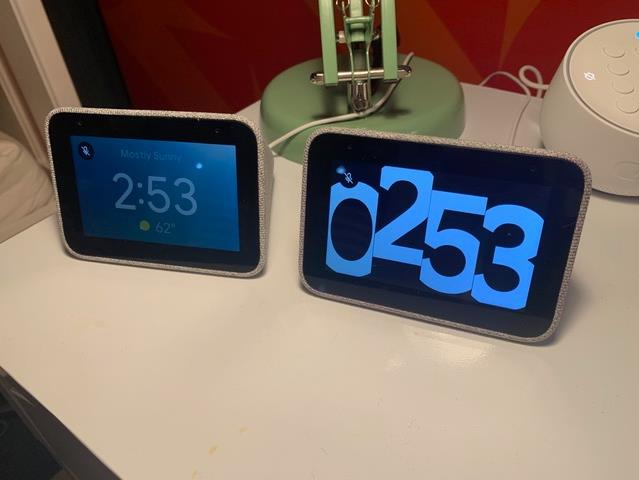
Lenovo Smart Clock /CGTN Photo
Lenovo Smart Clock /CGTN Photo
But the star of its lineup is the Thinkpad X1 Carbon.
At 1.08 kg and 0.95 mm thick, Lenovo says it's the lightest and thinnest 14-inch laptop in the world.
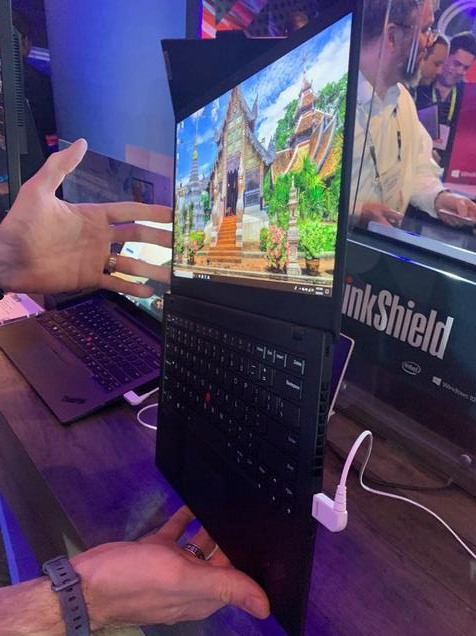
Lenovo Thinkpad X1 Carbon /CGTN Photo
Lenovo Thinkpad X1 Carbon /CGTN Photo
I asked Lenovo North American President Matt Zielinski whether he was worried about tariffs increasing the prices of components and slowing their growth.
"Many PC manufacturers build products in the same way and we are a part of that. So this situation affects us all in a very similar way," said Zielinski. "One thing uniquely advantaged with Lenovo is that we do more of our own in-house manufacturing than any other PC maker out there, so we have the ability to really flex and acquiesce around situations like this. And so look, we are monitoring it very closely, and you know if something pops up and we have to manage it, we can acquiesce."
Chinese startups are also making a splash at the event.
It was hard not to notice the wonder in so many observers' eyes as they saw Chinese startup Royole's flexible phone, known as the FlexPai, for the first time.
Royole is the first company to unveil a bendable phone.
And at CES they also showed off flexible screens on hats and purses too.
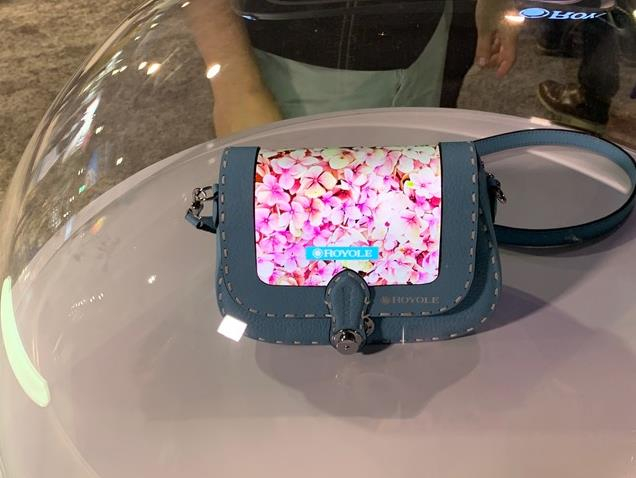
Royole purse with flexible screen /CGTN Photo
Royole purse with flexible screen /CGTN Photo
But what I found most impressive was their flexible keyboard, which rolls out like a sheet of film. It must be the thinnest keyboard in the world.
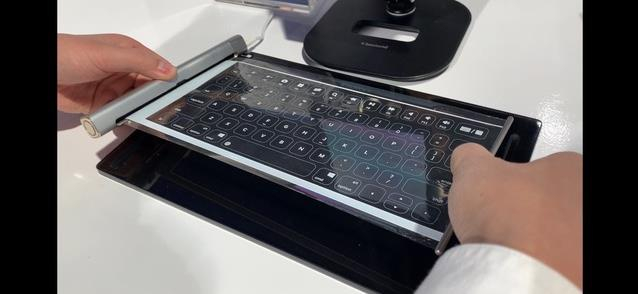
Royole's flexible keyboard /CGTN Photo
Royole's flexible keyboard /CGTN Photo
On the floors of CES, it was easy to spot lots of robots and moving suitcases, like the one from Chinese startup ForwardX. It actually works by using a camera and AI to recognize its owner, and then follows them around without any other control.
I asked ForwardX Founder and CEO Nicholas Chee if he was worried about the possibility of the tariffs making his product 20-percent more expensive to U.S. customers.
"For suitcase industry, all big company brands are all made in China – Samsonite, Tumi and other big brands," said Chee. "So we face the same problem. So I think there has got to be some way to solve that."
The trade tension is also a concern for U.S. startups, especially those with hopes of expanding to China.
Woobo is an AI-driven fuzzy and cuddly toy that answers questions and interacts with children.
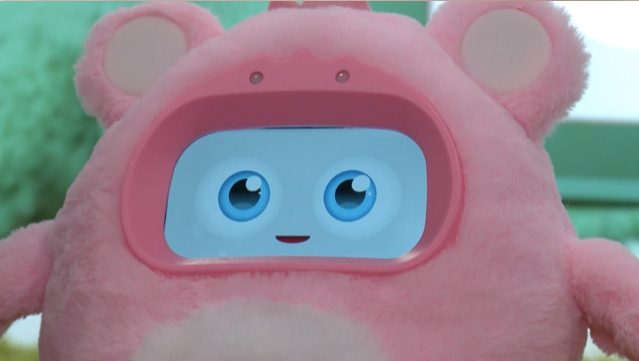
Woobo AI companion robot /CGTN Photo
Woobo AI companion robot /CGTN Photo
The company was founded by China-born Tan Feng.
Woobo recently opened an office in Beijing, preparing to launch in China this year.
Tan says the trade war has already had an impact.
"We've already seen some influence on the funding side. Investing in U.S. companies has been more limited actually when the fund source comes from China," said Tan. "Secondly, we are lucky that the toy category hasn't been included in the tax increase yet. But if that does happen, it will shorten our margin while also it will finally be translated to the customer side. Because when our cost goes up, the cost will also go up when they want to have quality products."
Despite the concerns, Tan remains positive, believing that there is still a great opportunity for his product in China, especially if it focuses on using AI to help children learn and help parents better teach their children.
(Cover via VCG)

SITEMAP
Copyright © 2018 CGTN. Beijing ICP prepared NO.16065310-3
Copyright © 2018 CGTN. Beijing ICP prepared NO.16065310-3